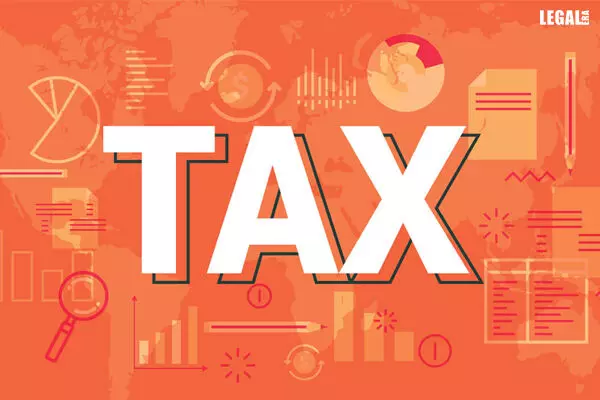- Home
- News
- Articles+
- Aerospace
- Agriculture
- Alternate Dispute Resolution
- Banking and Finance
- Bankruptcy
- Book Review
- Bribery & Corruption
- Commercial Litigation
- Competition Law
- Conference Reports
- Consumer Products
- Contract
- Corporate Governance
- Corporate Law
- Covid-19
- Cryptocurrency
- Cybersecurity
- Data Protection
- Defence
- Digital Economy
- E-commerce
- Employment Law
- Energy and Natural Resources
- Entertainment and Sports Law
- Environmental Law
- FDI
- Food and Beverage
- Health Care
- IBC Diaries
- Insurance Law
- Intellectual Property
- International Law
- Know the Law
- Labour Laws
- Litigation
- Litigation Funding
- Manufacturing
- Mergers & Acquisitions
- NFTs
- Privacy
- Private Equity
- Project Finance
- Real Estate
- Risk and Compliance
- Technology Media and Telecom
- Tributes
- Zoom In
- Take On Board
- In Focus
- Law & Policy and Regulation
- IP & Tech Era
- Viewpoint
- Arbitration & Mediation
- Tax
- Student Corner
- AI
- ESG
- Gaming
- Inclusion & Diversity
- Law Firms
- In-House
- Rankings
- E-Magazine
- Legal Era TV
- Events
- News
- Articles
- Aerospace
- Agriculture
- Alternate Dispute Resolution
- Banking and Finance
- Bankruptcy
- Book Review
- Bribery & Corruption
- Commercial Litigation
- Competition Law
- Conference Reports
- Consumer Products
- Contract
- Corporate Governance
- Corporate Law
- Covid-19
- Cryptocurrency
- Cybersecurity
- Data Protection
- Defence
- Digital Economy
- E-commerce
- Employment Law
- Energy and Natural Resources
- Entertainment and Sports Law
- Environmental Law
- FDI
- Food and Beverage
- Health Care
- IBC Diaries
- Insurance Law
- Intellectual Property
- International Law
- Know the Law
- Labour Laws
- Litigation
- Litigation Funding
- Manufacturing
- Mergers & Acquisitions
- NFTs
- Privacy
- Private Equity
- Project Finance
- Real Estate
- Risk and Compliance
- Technology Media and Telecom
- Tributes
- Zoom In
- Take On Board
- In Focus
- Law & Policy and Regulation
- IP & Tech Era
- Viewpoint
- Arbitration & Mediation
- Tax
- Student Corner
- AI
- ESG
- Gaming
- Inclusion & Diversity
- Law Firms
- In-House
- Rankings
- E-Magazine
- Legal Era TV
- Events
Madras High Court: Assistant Commissioner Can Impose only 40% Tax on Individual Engaged in Works Contract under Service Tax (Determination of Value) Rules, 2006

Madras High Court: Assistant Commissioner Can Impose only 40% Tax on Individual Engaged in Works Contract under Service Tax (Determination of Value) Rules, 2006
The Madurai bench of the Madras High Court presided by Justice S. Srimathy has quashed the assessment order issued by the Assistant Commissioner of GST and Central Excise while observing that the Assistant Commissioner had imposed 100% tax on the petitioner without invoking Rule 2(ii)(A) of the Service Tax (Determination of Value) Rules, 2006, and Notification dated 20 June, 2012.
In the present case, the petitioner had received a notice from the Assistant Commissioner of GST and Central Excise, however he failed to respond or file any reply.
Subsequently, the Assistant Commissioner scheduled three personal hearings, however, the petitioner did not appear for any of these opportunities. Due to the petitioner’s non-cooperation, the Assistant Commissioner of GST and Central Excise had no other option but to pass the impugned assessment order.
In response, the petitioner filed a writ petition challenging the assessment order.
The Court pertinently noted that the petitioner had raised a crucial point regarding their engagement in works contract activities.
The judge noted that the Assistant Commissioner of GST and Central Excise had acknowledged that the petitioner was involved in works contract, specifically related to tasks such as construction of check dams, repairing of irrigation tanks, and construction of Government schools and Government Polytechnic.
The Court upon perusal of Rule 2(ii)(A) of Service Tax (Determination of Value) Rules, 2006, found that if the petitioner was considered as an individual engaged in works contract, the Assistant Commissioner should have imposed only 40% tax. However, the Assistant Commissioner had not granted the abatement of 60% provided for the works contract.
Consequently, the Court held that if the said rule was applied, the Assistant Commissioner would not have been empowered to impose 100% tax on the petitioner.
The judge further remarked if the Assistant Commissioner of GST and Central Excise had considered the petitioner as registered under the Company’s Act, then the petitioner would have been entitled to pay only 50% tax as per Notification dated 20 June, 2012.
However, the Assistant Commissioner imposed 100% tax on the petitioner without invoking the relevant Rule 2(ii)(A) and Notification dated 20 June, 2012.
Due to the aforementioned failure on part of the Assistant Commissioner to apply the relevant rules and notifications, the Court deemed appropriate to quash the assessment order.



